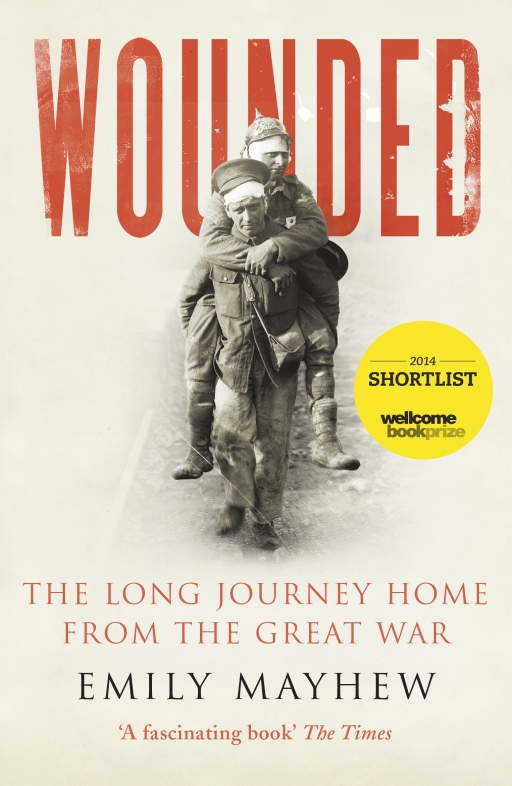Publisher’s Description
“This book takes the form of a journey: that of a wounded man from injury on the battlefield to recovery in a hospital in Britain. It tells that story through the personal testimony of those who cared for him – stretcher bearers and medical officers, surgeons and chaplains, nurses and ambulance drivers – and in the process it follows the injured soldier from the aid post in the trenches to the casualty clearing station in the rear, from the base hospital to the ambulance train returning him to Blighty. It was often the journey of a soldier with horrific and debilitating injuries who was lucky to be alive.
Painstakingly researched and written with novelistic immediacy, Wounded tells the full story of medical care in the war for the first time. But this is not just a book about the injured men and the medical personnel that treated them: their experience encapsulates what it was like to fight, live and die for four long years at the Western Front. Wounded is an important contribution to our understanding of the First World War.”
Centenary News Review
Review by: Eleanor Baggley, Centenary News Books Editor
Wounded by Emily Mayhew is the kind of non-fiction that makes all other non-fiction look bad. It is compelling, thoughtful and well articulated in its exploration of the much overlooked role of the wounded in World War One.
As the subtitle – ‘The Long Journey Home from the Great War’ – suggests, this is the story of the journey from battlefield to Blighty. But it is not just the story of the injured, it is also the story of those who were instrumental in ensuring that the injured made it home. The stretcher bearers, medical officers, surgeons, chaplains, nurses and ambulance drivers are all given their place in the journey. Mayhew gathers together the forgotten experiences of these people to reveal the difficulties they faced and the moments of release they were occasionally able to grasp.
Of all the groups explored, three stood out for me: the chaplains, the stretcher bearers and the nurses on the ambulance trains. These are all roles that are known, they crop up in fiction and non-fiction even if only as a mere mention, but their place in the war is often overlooked. Mayhew tells us the story of a bearer who returned with his hands covered in blood and, little did anyone know, it was his own from where his hands had been ripped to shreds by the stretcher. We learn about the many chaplains whose religious duties came almost secondary to their duties helping in wards and ambulances. And we hear about the nurses on ambulance trains who fear a ‘pushload’ and decorate their carriages with wild flowers to lift the spirits of the patients. It is the telling of these small acts that make this book so very human and entirely readable.
For a relatively short book, Wounded packs a lot in. The way Mayhew uses her research and weaves it into a narrative means that it never comes across like a stream of facts. We are introduced to individuals almost like characters in a book – each has their life story told alongside the narrative of their role in the war. This would be an excellent choice for someone who is really interested in the people behind the war and their individual experiences.
Wounded is a bold book. Mayhew’s research is meticulous and she uses that research in such a way as to reveal how, even as war pushes humanity to the very limit, humanity pushes back. The information is almost relentless in the way it pulls at your emotions, but you will go away with a new knowledge of a somewhat overshadowed aspect of the war.
What do you think about this book or review? Please add a comment below.
